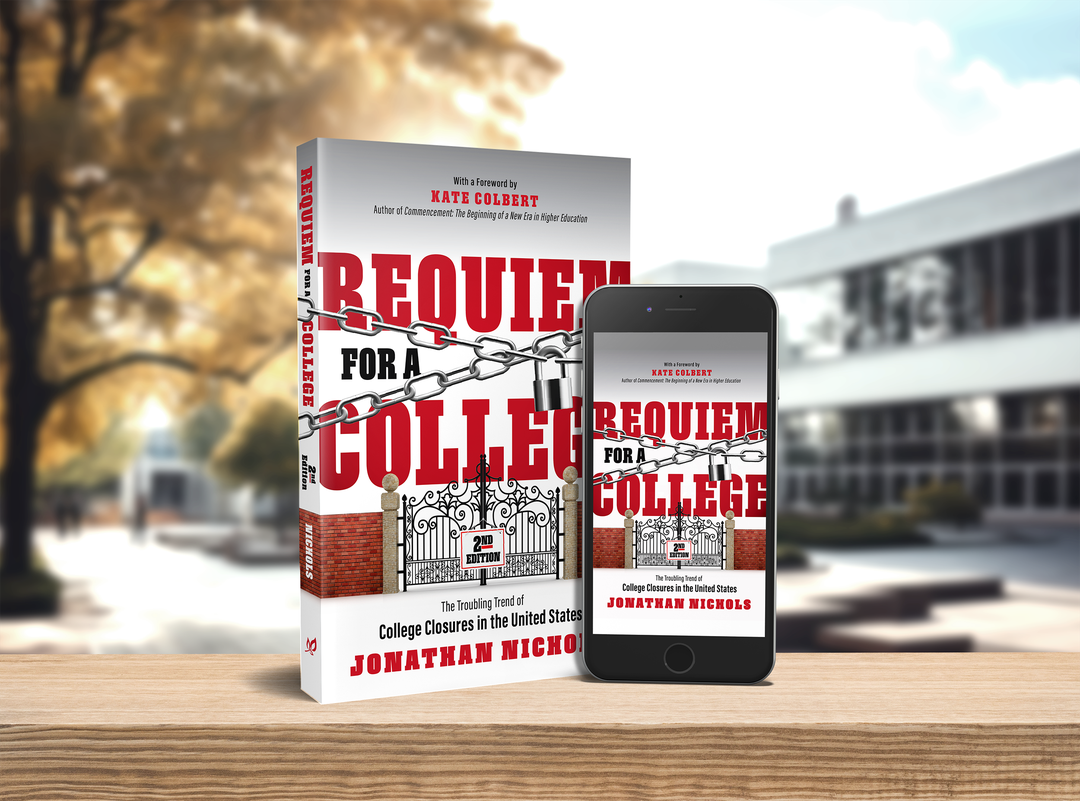By Contributor,Derek Newton,Jonathan Nichols
Copyright forbes

Requiem for a College, by Jonathan Nichols.
Silver Tree Publishing
A consistent topic of conversation and concern in higher educaiton over the past decade has been college closures – the scope, the how, the why, and what to do about the shuttering of American learning institutions.
In this conversation is Requiem for a College: The Troubling Trend of College Closures in the United States, by Jonathan Nichols, recently updated and reissued.
The book is a page-by-page historical record of the painful, even agonizing, process of closing a college – Saint Joseph’s College in Indiana, in 2017. It’s revealing, riveting, and should help all of us move our gaze away from policy and punditry to the human and social consequences of closing a college.
The book is, as mentioned, an insightful and important contemporary historical record told by someone who lived it. But in the hands of Nichols, Requiem is a better fit for the shelves of true crime than narrative non-fiction.
In an interview with Nichols about his book, he agrees. More or less.
“Spite is one hell of a motivator,” he started.
MORE FOR YOU
“I began my writing and research process in the spirit of prosecuting a case. I believed that there was a conspiracy to take Saint Joseph’s away from students, faculty, and alumni. I found that was absolutely not the situation at hand. The ‘suspension of operations’ was the result of decades of factors, of decisions and — most importantly — indecisions. There was no plot. Just a devastating end,” Nichols said.
Moving out a bit, Nichols said of the closure and his close study thereof, “I continue to marvel at how complex and nuanced most major events, like a college collapse, tend to be. It’s seldom the consequence of one person’s actions, but instead many people’s involvement—their mistakes, their naivete, their arrogance, their reckless indifference. It’s never one thing.”
Curious about living through a closure, I asked about those who may be on the brink of reliving Nichols’ experiences – what people in a college community should do when they hear rumors about bad forecasts, future calamities.
“For those on the inside like faculty, staff, and students, such rumors should be heeded,” he said. “Hoping for the best rarely works out. Ask questions and demand answers. Educate yourself about how college closures work and familiarize yourself with your institution’s audited financial statements, usually hidden somewhere on the President’s page of the website, and your IPEDS data,” Nichols said.
Without too much twinge, he added, “For faculty and staff, I’d be remiss not to suggest polishing your resume or CV and networking with people at institutions where you’d be a great asset.”
Seeking warnings or tips for others, I asked Nichols about what he would do differently in the closure process if he had a do-over.
“Something I would do — if granted a do-over — would be to redesign the Saint Joe Core curriculum to be less reliant on a student attending all the way from freshman to senior year. Colleges have become airports, not hotels. Roughly half of the students in the nation start at community colleges and then transfer to other institutions. That means we effectively excluded a fairly large portion of the student market when building our curriculum at Saint Joseph’s College with the assumption that students arrive straight out of high school and persist, without interruption, for four years until graduation,” he said.
I asked if his experience at St. Joseph’s was a unique circumstance, or a common tale. Flashing the wit that shows through his coverage of what could be a boring tale of administrative woe, he answered, “yes.”
As someone who didn’t volunteer to be a contemporary expert on college collapse, I asked Nichols if he thought it was possible to make a college closure-proof. “No,” he started. “In my view, that would be like guaranteeing that a business won’t fail. Even the giants of industry have fallen,” he said.
Finally, I asked Nichols what key takeaway people should get from his experiences and from his book. His key is the simple and painful. “Real people are being hurt by this trend of small college closures,” he said.
Continuing, he added, “A lot of people are questioning the value of higher education these days and in some circles, the industry doesn’t enjoy the best reputation. Anti-intellectualism has been on the rise for a long while. There are even people celebrating the end of these colleges or, at best, shrugging their shoulders and accepting the death of beloved colleges and universities as an inevitable ‘right-sizing’ of the industry.
“But the impact is human. Every closure means a student left looking for a way to continue their education, and we know from the data that so many of them don’t. Their college dreams die when their chosen college closes shop, and the impact on their lives and careers is forever,” he said.
Requiem is a story with too many victims to count. It’s a common narrative, yet entirely its own. One looming over too many towns, colleges, students, businesses, and educators. It’s not a tale of criminality – as Nichols was clear, there was no malice or conspiracy. But any reader, anyone paying attention, could be excused for thinking that what happened was a crime anyway.
Editorial StandardsReprints & Permissions